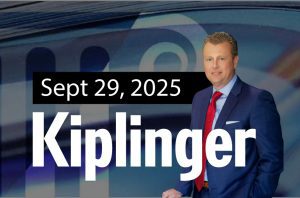Did you know that 72% of households don’t currently have a written financial plan? So how can you create a strategy that addresses your financial needs and mitigates potential risks?
The answer lies in developing a comprehensive financial plan!
Join us as we explore the essentials of building a successful financial plan, covering how to set financial goals, assess your current situation, and much more.
Understanding Your Financial Goals
Financial goals are the foundation of a comprehensive financial plan. These goals are specific objectives you want to achieve with your money. They can be short-term, like saving for a vacation, medium-term, such as buying a car, or long-term, like planning for retirement.
Setting clear financial goals is important because it gives you direction and motivation. It helps you prioritize where your money should go and keeps you focused on what matters most to you.
To start, think about what you want to achieve in the next few years. Do you want to save for a down payment on a house? Are you planning for your child’s education? Write down your goals and be specific.
Instead of saying, “I want to save money,” say, “I want to save $10,000 for a down payment on a house in three years.” This makes your goal clear and measurable.
Once you have your goals written down, categorize them into short-term, medium-term, and long-term. Short-term goals are usually achieved within a year or two. Medium-term goals might take three to five years.
Long-term goals often take more than five years to accomplish. Having a mix of these goals helps you balance your immediate needs with your future aspirations.
Assessing Your Current Financial Situation
Before you can create a comprehensive financial plan, it’s essential to assess your current financial situation. Start by examining your income.
Know how much money you make each month from all sources, including your job, any side gigs, and any other income. Next, take a close look at your expenses.
Track everything you spend money on, from your rent or mortgage to groceries and entertainment. This helps you understand where your money is going and identify areas where you might be able to save.
Once you have a clear picture of your income and expenses, it’s time to look at your assets and liabilities. Assets are what you own, such as your home, car, savings accounts, and any valuable possessions.
Liabilities are what you owe, like your mortgage, car loan, credit card debt, and any other loans. Subtract your liabilities from your assets to determine your net worth. This number gives you a snapshot of your financial health.
Understanding your financial situation also involves looking at your credit score and credit report. Your credit score is a number that represents your creditworthiness. Lenders use it to decide whether to give you a loan or credit card.
Check your credit report for any errors and make sure all the information is accurate. A good credit score can help you get better interest rates and loan terms.
Finally, create a budget based on your income and expenses. A budget is a plan for how you will spend your money each month. It helps you live within your means and save for your financial goals.
Developing a Comprehensive Financial Plan
Creating a comprehensive financial plan involves several key steps. First, start by setting a budget. A budget helps you manage your money by outlining your income and expenses. Make sure to include all sources of income and list all your expenses, both fixed and variable.
Fixed expenses are things like rent, mortgage payments, and utilities, which stay the same each month. Variable expenses, like groceries and entertainment, can change month to month. A budget helps you see where your money goes and can highlight areas where you can cut back or save more.
Next, focus on saving. A good financial plan includes regular savings for both short-term and long-term goals.
Start by building an emergency fund. This fund should cover three to six months’ worth of living expenses. It’s there to help you in case of unexpected events, like a job loss or a medical emergency. Having an emergency fund provides peace of mind and financial security.
Another important part of a financial plan is managing debt. If you have any debts, like credit cards, student loans, or a mortgage, make a plan to pay them off.
Prioritize high-interest debt first, as it costs you more over time. Paying off debt can free up money that you can then use for savings or other financial goals.
Insurance is also a critical component of a financial plan. Make sure you have adequate health, auto, home, and life insurance coverage.
Exploring Financial Products and Services
To support your comprehensive financial plan, you should explore various financial products and services. Start with savings accounts, which offer a safe place to store your money while earning a small amount of interest. Savings accounts are great for building an emergency fund or saving for short-term goals.
Insurance is another key financial product to consider. Health insurance covers medical expenses, while life insurance provides financial support to your loved ones in case something happens to you.
Auto and home insurance protect your valuable assets. Having the right insurance policies in place helps you with risk management, and in avoiding large, unexpected expenses.
Retirement accounts, such as 401(k)s or IRAs, are important for long-term financial planning. These accounts help you save money for retirement in a tax-advantaged way. Regularly contributing to a retirement account ensures you have funds available when you’re no longer working.
Debt management tools, like consolidation loans or credit counseling services, can help you handle existing debts more effectively. These services offer strategies for reducing interest rates and monthly payments, making it easier to pay off what you owe.
Long-Term Financial Security
A comprehensive financial plan is essential for achieving your financial goals and ensuring long-term security.
The Miser Wealth Partner process is different from any other advisory meeting you have ever attended. Our focus isn’t on your investments, your insurance holdings, your money. Our focus is on you. Get in touch today to find out how we can help your long term financial strategy.




